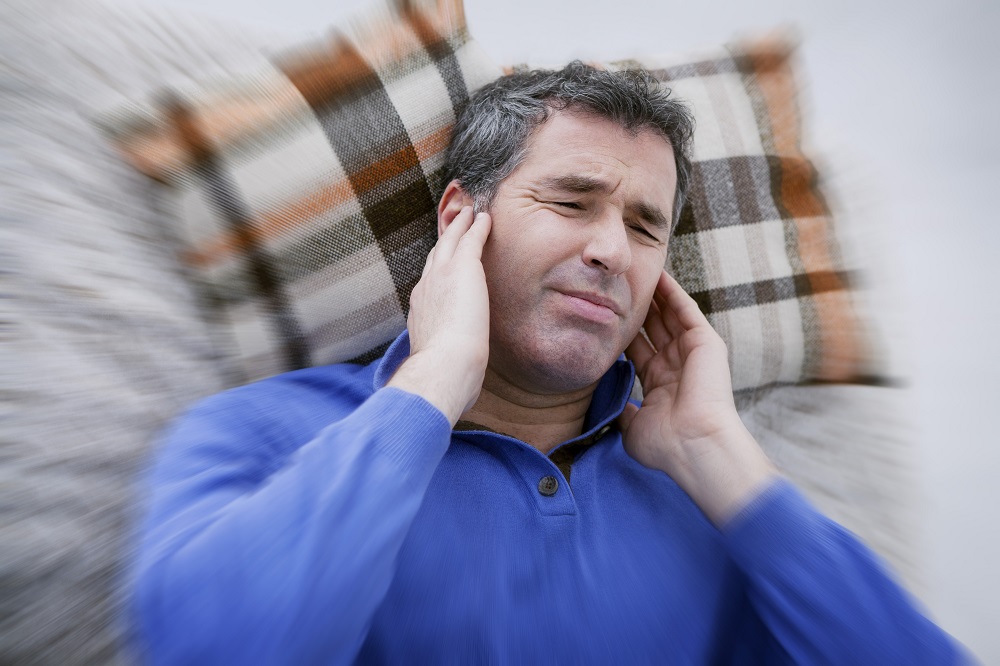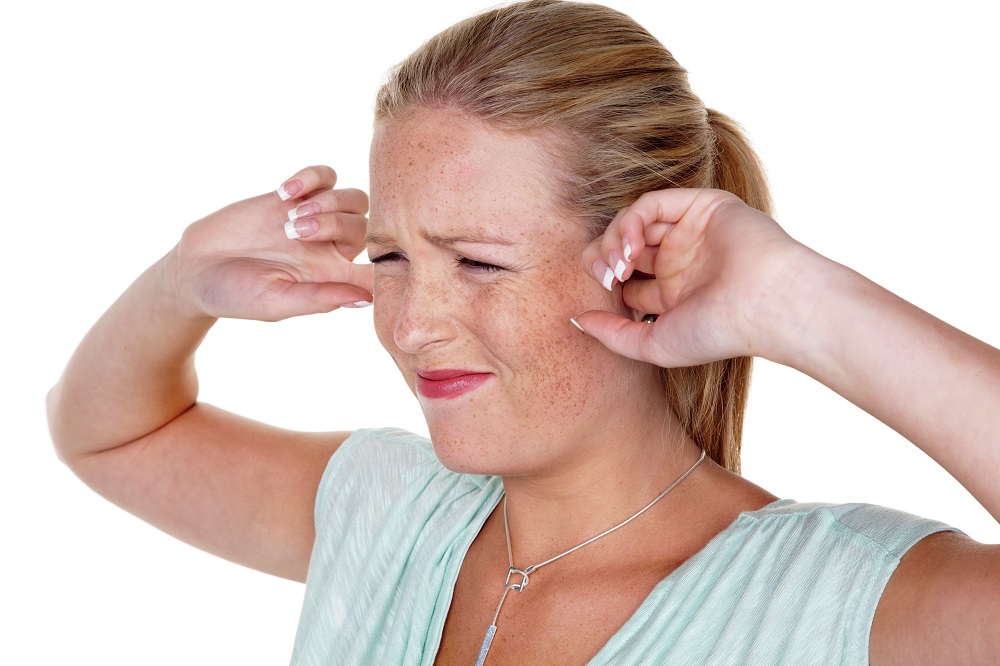Signs of tinnitus are hearing sounds that come from inside the body, such as:
- Ringing
- Buzzing
- Humming
- Hissing
- Grinding
- Whistling
- Sounds similar to music or singing
- Noises that beat in time with the pulse
Additional symptoms might be:
- Deterioration in hearing
- More sensitivity to everyday sounds
A number of health conditions may result in tinnitus. In quite a few cases, an exact cause is never found.
Common causes of tinnitus may be:
- Hearing loss: It often starts around age 60.
- Loud noises, e.g. from chain saws, MP3 players, iPods: Long-term exposure to loud sound may result in permanent damage. Tinnitus caused by short-term exposure (loud concert, e.g.) normally disappears.
- Earwax blockage: Too much earwax causes hearing loss or irritation of the eardrum, which may lead to tinnitus.
- Stiffening of the bones in the middle ear: It might affect hearing and cause tinnitus. This condition, caused by abnormal bone growth, seems to be hereditary.
- Middle ear infection
Other – less common – causes of tinnitus:
- Meniere's disease (an inner ear disorder)
- TMJ disorders (problems with the temperomandibular joint)
- Neck or head injuries (tinnitus mostly occurs only in one ear)
- Acoustic neuroma (benign tumor causes tinnitus only in one ear)
- In rare cases: blood vessel disorders caused by head and neck tumors that press on blood vessels in head or neck, atherosclerosis, high blood pressure, hypertension, factors that increase blood pressure (e.g. alcohol, caffeine, stress), turbulent blood flow, malformation of capillaries (abnormal connections between arteries and veins)
- Medications, such as antibiotics, cancer medicaments, quinine medications, aspirin in very high doses, certain antidepressants
- Smoking
Tinnitus can reduce quality of life. Although it affects patients in different ways, they may experience:
- Stress
- Fatigue
- Irritability
- Sleeping problems
- Lack of concentration
- Memory problems
- Anxiety
- Depression
At the moment, there is no general treatment for tinnitus. If the doctor finds an underlying cause, he/she will treat it to improve the condition. If the physician cannot find a specific cause, the patient gets help to manage tinnitus in everyday life, e.g. with:
- Sound therapy (neutral sounds to distract the affected person from the tinnitus sound)
- Counseling (patients learn to cope with tinnitus)
- Cognitive behavioral therapy (helps patients change their attitude towards tinnitus in a way that they don't notice it much anymore)
- Tinnitus retraining therapy (TRT) (helps patients retrain the way their brain responds to tinnitus in order to tune the sound out and become less aware of it)
- Correcting hearing loss by appropriate treatment, e.g. hearing aid, surgery (on the one side, straining to listen may worsen tinnitus; on the other side, better hearing will involve hearing sounds that were inaudible for the affected person before, and may now override tinnitus sounds)
Self care
To manage tinnitus, the following techniques might also help:
- Relaxation techniques (yoga, etc.)
- Listening to calming music
- Regular sleep pattern if tinnitus bothers the patient at night
- No caffeine or alcohol before bed time
- Enjoyable hobbies and activities to get distracted from tinnitus
- Tinnitus support groups to exchange experiences
Preventive measures
Although tinnitus cannot be prevented most of the time, there are some precautions that may help avoid the condition, such as:
- Using over-the-ear hearing protection, e.g. if exposed to very loud music (as a musician), noise of chain saws, loud machinery in the industry, firearms
- Turning the volume down, especially of devices that are used with headphones
- Improving cardiovascular health, e.g. by regular exercise, healthy diet


